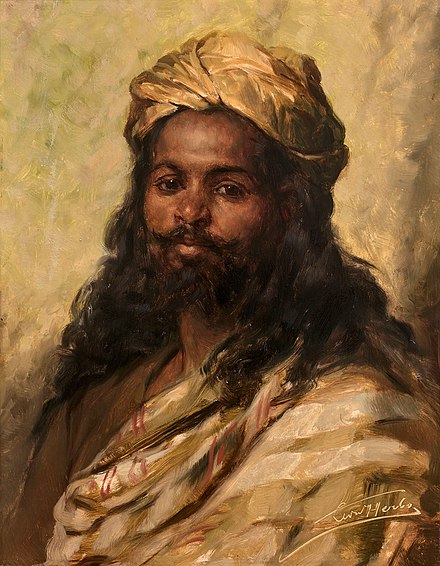hello comrades here we shall be discussing The Wretched of the earth preface and chapter one On Violence i was gonna write my own summry for yall but this summary and analysis i found would serve you all better than what I could write this morning, my sincere apoligies I wiil start us off with some optional question promts!
what did you think of satare’s preface?
what does Fanon mean by “replacing one species with another”?
who is the colonized intellectual? what role does he serve?
what does Fanon say about nationalist reformist movements? what are their failings?
why must decolonization be total and all encompassing?
why is the allocation of instruments of force important? I also want to encourage everyone to try to make critique of the reading.
these are just a few things to get the ball rolling, please let me know what I can do better! Please keep commenting and contributing to this thread through out the week for those of you not caught up, this isnt school there is no late work, in fact i hope people come back to these threads many times to see other comrades thoughts. lastly it seems like you guys really like the summary and study guide I found so I will keep using it in future post (its pretty cool its like sparknotes)
English translation by Richard Philcox – https://ia801708.us.archive.org/3/items/the-wretched-of-the-earth/The Wretched Of The Earth.pdf – you'd be reading from page 42 to 311 of this PDF, 270 pages
English translation by Constance Farrington – https://abahlali.org/wp-content/uploads/2011/04/Frantz-Fanon-The-Wretched-of-the-Earth-1965.pdf
Original French text – https://monoskop.org/images/9/9d/Fanon_Frantz_Les_damnés_de_la_terre_2002.pdf
English audio version – https://inv.tux.pizza/playlist?list=PLZ_8DduHfUd2r1OOCtKh0M6Q9xD5RaR3S – about 12h20m – Alternative links
I didn’t get a chance to reread this yet, unfortunately, so I may be a bit fuzzy on the contents of individual chapters. But my personal takeaway from the early chapters, was realizing how whitewashed and specific colonizers/capitalists have managed to confine our definition of violence. From passive voices about police shootings to anaodyne language around military invasions, our culture works very hard to make sure that violence is seen as a physicial action of the “lesser” people of our society; Unwarranted and Uncouth. Riots are never framed as uprisings, theft is never framed as expropriation. By refusing to acknowledge the grievances of the lower classes in our language, the Cultural Hegemony erases the crimes of the ruling class.
This realization combined with the idea of Social Murder blew my brain open. By a small miracle, a short time later I ended up reading Blackshirts and Reds followed by The Jakarta Method.

I think you have really hit the heart of the chapter. If we used the colonizers morality we can not hold the perpetrators accountable. great response!
Thanks! Pretty sure when I get a visit from the feds for posting too hard, I’ll have Fanon to thank.

Have a bit of things to do on the side so I cannot answer every reading question, but because comrade Othello has so kindly made an effortpost on a book that I should read in-depth as a fellow PoC which is on my list, as well as to earnestly participate in future Hexbear theory read-alongs, I have begun reading (though not as deeply as I would like if I had completely free time to absorb a book) Fanon’s Wretched of the Earth
what did you think of satare’s preface?
An interesting and scathing preface written in the view of a European and (assuming through the usage of ‘we’ and of describing conditions of colonial expropriation of resources to Europe) writes for Europeans (“Europeans, you must open this book and enter into it.”), yet one that also applies to the US in the 21st century. Some of Sartre’s rhetorical flourishes about the cultural chauvinism displayed by Europeans, even in a voice that critiques such statements make me cringe a bit, yet Sartre exposes the colonialist mindset in such a stark way that echoes some of the neocolonialist apologia in the 21st century:
“A few years ago, a bourgeois colonialist commentator found only this to say in defense of the West: ‘We aren’t angels. But we, at least, feel some remorse.’”
“But, all the same, they think to themselves, there are limits; these guerillas should be bent on showing that they are chivalrous; that would be the best way of showing they are men. Some times the Left scolds them . . . ‘You’re going too far; we won’t support you any more.’ The natives don’t give a damn about their support; for all the good it does them they might as well stuff it up their backsides.”
“You, who are so liberal and so humane, who have such an exaggerated adoration of culture that it verges on affectation, you pretend to forget that you own colonies and that in them men are massacred in your name.”
A scathing preface of European colonialism and a solid intro to what Fanon will expound on later.
what does Fanon mean by “replacing one species with another”?
Fanon begins chapter 1 with the statement that “National liberation, national renaissance, the restoration of nationhood to the people, commonwealth: whatever may be the headings used or the new formulas introduced, decolonization is always a violent phenomenon.” [emphasis mine] Fanon writes that in the undergoing of decolonization that success lies in the whole of the social structure changed from the bottom up, in both the material lives and cognitive consciousness of those colonized. Conversely, within the minds of the colonizers, the possible act of decolonization is “equally experienced in the form of a terrifying future.”
Fanon writes: Decolonization never takes place unnoticed, for it influences individuals and modifies them fundamentally. It transforms spectators crushed with their inessentiality into privileged actors, with the grandiose glare of history’s floodlights upon them. It brings a natural rhythm into existence, introduced by new men, and with it a new language and a new humanity. Decolonization is the veritable creation of new men."
who is the colonized intellectual? what role does he serve?
Fanon writes of the frenzied search of compradors and local bourgeois within a colonized country by the colonizers for “the indigenous population is discerned only as an indistinct mass” to the colonizers, in order to undergo the “familiar dialogue concerning values is carried on” through colonial ideological indoctrination and dissemination. “The colonialist bourgeoisie had hammered into the native’s mind the idea of a society of individuals where each person shuts himself up in his own subjectivity, and whose only wealth is individual thought,” writes Fanon.
Yet in cases of decolonization, Fanon writes of the dangers of the colonized intellectual that remain, especially if in positions of governance and power for: “We find intact in them the manners and forms of thought picked up during their association with the colonialist bourgeoisie. Spoilt children of yesterday’s colonialism and of today’s national governments, they organize the loot of whatever national resources exist. Without pity, they use today’s national distress as a means of getting on through scheming and legal robbery, by import-export combines, limited liability companies, gambling on the stock exchange, or unfair promotion.” When colonial ideology and indoctrination exist in a formerly colonized populace, colonized intellectuals within positions of power act as cat’s-paws and comprador cutouts furthering neocolonial interests.
what does Fanon say about nationalist reformist movements? what are their failings?
Fanon writes that the concept of colonialism has changed over time, when once a column of imperialist soldiers may occupy swathes of land to expropriate wealth and natural resources to the European market, now, " After a phase of accumulation of capital, capitalism has today come to modify its conception of the profit-earning capacity of a commercial enterprise. The colonies have become a market. The colonial population is a customer who is ready to buy goods; consequently, if the garrison has to be perpetually reinforced, if buying and selling slackens off, that is to say if manufactured and finished goods can no longer be exported, there is clear proof that the solution of military force must be set aside." [emphasis mine.]
Yet, as Fanon writes: “Thus the nationalist leader who is frightened of violence is wrong if he imagines that colonialism is going to “massacre all of us.” The military will of course go on playing with tin soldiers which date from the time of the conquest, but higher finance will soon bring the truth home to them.” [emphasis mine yet again.]
Fanon critiques nationalist reformist movements that " take the interests of both parties into consideration," [colonizer and colonized] solely through acts of peaceful dissent, alongside colonizers’ appealing to religion, of “all those saints who have turned the other cheek, who have forgiven trespasses against them, and who have been spat on and insulted without shrinking,” used to pacify dissent of a populace oppressed by violence who are exploited. However, harkening back to the beginning of the chapter “decolonization is always a violent phenomenon” and as also stated earlier within the chapter (and apparent through historical precedent) colonization too is a violent phenomenon.
 Excellent first chapter, though again due to time, I unfortunately am unable to answer all of the reading questions, nor spend the preferred amount of time reading and analyzing Chapter 1 of Wretched of the Earth to the degree that I feel like I proficiently understand every point Fanon (and comrade Othello via reading questions) that On Violence and _Violence in International Context _ conveys. I will return in the future to re-read and re-examine these points and hopefully I did not misconstrue some of the points Fanon is making on this engaging (yet great in depth, especially with myself having a fried attention span due to being terminally online) first chapter. This is a great work to cover as a theory discussion series, no issue with how you have presented this intro to discussion, and sorry about not being able to cover all the questions that you have laid out for this first discussion. Thanks Othello!
Excellent first chapter, though again due to time, I unfortunately am unable to answer all of the reading questions, nor spend the preferred amount of time reading and analyzing Chapter 1 of Wretched of the Earth to the degree that I feel like I proficiently understand every point Fanon (and comrade Othello via reading questions) that On Violence and _Violence in International Context _ conveys. I will return in the future to re-read and re-examine these points and hopefully I did not misconstrue some of the points Fanon is making on this engaging (yet great in depth, especially with myself having a fried attention span due to being terminally online) first chapter. This is a great work to cover as a theory discussion series, no issue with how you have presented this intro to discussion, and sorry about not being able to cover all the questions that you have laid out for this first discussion. Thanks Othello!the questions were optional and i LOVED you responses! thank you so much for your excellent response. I dont believe you misconstrued any of Fanons points, I also very much agree with your read of satare (i was so taken aback the first time i read “we Europeans” like we who?). excellent points all around.
Thank you!
Reading, even with the cursory analysis I had, through Fanon’s writing is a breath of fresh air, especially through his viewpoint as a PoC intellectual from Martinique [which upon looking up, is a French “Single territorial collectivity” to this day. 🔥 🇫🇷 🔥 Free Martinique!'] without the biases and chauvinism, conscious and unconscious, of white western theoreticians.
Striking is his affirmation that the act of decolonization is violent and can only be violent similarly to how colonialism and its establishment can only be violent, and that hand-wringing by the moderate liberals who equivocate the violence by colonized with violence by the colonizer, who go over the talking points of “Yes I believe colonialism is a monstrous system and I denounce it, yet violence committed in the sake of colonialism’s opposition is also wrong! Change must be moderate, reserved, blah blah blah blah blah” ultimately are either cynical liars, or useful fools who will denounce the forceful response to colonialism/neocolonialism by the oppressed and exploited, and in the same breath, without any shame, excuse colonial violence as “a horrid thing, one to be opposed, but a regretful thing of the past, one that we can learn from” while turning a blind eye or denial of existing, ongoing oppression and expropriation of natural resources of colonies and neocolonies.
He puts into words one of the things that infuriates me beyond measure when talking to the “white moderate” about imperialism, no matter how moralistically self-flagellating even the most well-meaning liberal is regarding imperialism, denying neocolonialism as an ongoing phenomena or relegating colonialism and the scars it had created as a ‘thing of the past’ and that ‘we [blech, what do you mean WE] learned from our mistakes’ and proceeding to uncritically absorb international “unbiased” news media or take government officials at face value perpetuating the same systems but under a new neocolonialist patina, which manufactures consent for punitive acts of military intervention or economic sanctions, makes apparent how it’s the same shit but just a little bit different and these “mistakes” are still continuing to be made. The West has not changed, it will not change, and it cannot be trusted to bring about change for the dismantling of the successor systems of historical colonialism.
His analysis that decolonization must be undertaken bottom up, and address both base and superstructure is an excellent point. It’s apparent how decolonization of the base, of both means and relations of production, are critically important, but also with his point on how ignoring decolonization of the superstructure, of colonizer ideology, perpetuates a more decentralized system of compradors and vendepatrias that maintain oppressive systems.
I meant to get around reading Wretched of the Earth, and what better time to do so than right now with comrades on Hexbear. I’m really liking this so far, thanks for pushing for this as a collective analysis on my favorite six-sided bear site.
for someone who claims to be busy, you sure have a great understanding of Fanons work !! I find reading fanons work to be both soothing and invigorating. soothing because he so clearly rejects this perverted morality that tells us the suffering and death brought on my colonialism is natural and just. and invigorating because he lays out the path forward with an sense of self-assuredness that makes me wanna {redacted}. I feel the same way when talking to white moderates, capitalist posing as compassionates be offending me, as kendrick says lol.
but also with his point on how ignoring decolonization of the superstructure, of colonizer ideology, perpetuates a more decentralized system of compradors and vendepatrias that maintain oppressive systems
I think this is one of there more important take aways, Ive really struggled to articulate this concept myself, how the colonizer can both leave and stay at the same time.
Im so glad you are enjoying this discussion! Dont forget that deadlines are not real here and you can take your time with responses. you have great insight and add so much to the discussion plantifa!
Thank you! I’m looking forward to future discussion posts, thanks again for putting this together Othello!

excited to see you there. and I cant take too much credit @vampire (i forgot how to tag people on here) is the one who got this started. I only hope im doing right by them!
Leading the discourse, providing discussion questions, and taking the time to respond to other poster’s analyses is very important too, and on the second thing, you absolutely are, I’m enjoying the discussions!
 why thank you!
why thank you!
what did you think of satare’s preface?
He adds absolutely nothing and it was wise for Fanon’s widow Josie to take that shit out when Sartre came out as a Zionist. It speaks a lot for someone to have allegedly read the book but not understand a single thing about it.
I’ve read the book a while ago, and here’s some passages that I’ve highlighted. Many of them are passages that people constantly quote and I will be no exception:
In the colonies the economic substructure is also a superstructure. The cause is the consequence; you are rich because you are white, you are white because you are rich. This is why Marxist analysis should always be slightly stretched every time we have to do with the colonial problem.
For a colonized people the most essential value, because the most concrete, is first and foremost the land: the land which will bring them bread and, above all, dignity. But this dignity has nothing to do with the dignity of the human individual: for that human individual has never heard tell of it. All that the native has seen in his country is that they can freely arrest him, beat him, starve him: and no professor of ethics, no priest has ever come to be beaten in his place, nor to share their bread with him. As far as the native is concerned, morality is very concrete; it is to silence the settler’s defiance, to break his flaunting violence—in a word, to put him out of the picture.
But at the beginning of his association with the people the native intellectual over-stresses details and thereby comes to forget that the defeat of colonialism is the real object of the struggle. Carried away by the multitudinous aspects of the fight, he tends to concentrate on local tasks, performed with enthusiasm but almost always too solemnly. He fails to see the whole of the movement all the time. He introduces the idea of special disciplines, of specialized functions, of departments within the terrible stone crusher, the fierce mixing machine which a popular revolution is. He is occupied in action on a particular front, and it so happens that he loses sight of the unity of the movement. Thus, if a local defeat is inflicted, he may well be drawn into doubt, and from thence to despair. The people, on the other hand, take their stand from the start on the broad and inclusive positions of bread and the land: how can we obtain the land, and bread to eat? And this obstinate point of view of the masses, which may seem shrunken and limited, is in the end the most worthwhile and the most efficient mode of procedure.
When in 1956, after the capitulation of Monsieur Guy Mollet to the settlers in Algeria, the Front de Liberation Nationale, in a famous leaflet, stated that colonialism only loosens its hold when the knife is at its throat, no Algerian really found these terms too violent. The leaflet only expressed what every Algerian felt at heart: colonialism is not a thinking machine, nor a body endowed with reasoning faculties. It is violence in its natural state, and it will only yield when confronted with greater violence.
Now, when a journalist from the West asks us questions, it is seldom in order to help us. In the Algerian war, for example, even the most liberal of the French reporters never ceased to use ambiguous terms in describing our struggle. When we reproached them for this, they replied in all good faith that they were being objective. For the native, objectivity is always directed against him.
a scathing critique assorted biscuits!!! I love to see it. I didnt even know sartre became a Zionist, what a betrayal of every value in this book. I love the quotes you choose as well.
I didn’t know that as well, but it also doesn’t really surprise me. I was talking about this the other day in regards to Lucio Urtubia not agreeing with the methods of Castro and Chavez. I’m not super well read on european leftists yet, but it seems like every time I do dip my toes in the well I find a lot of hypocrisy when it comes to the third world. Urtubia flat out helped fund violent resistance against Franco, so the idea that he’d be against people in the Third World doing so seems wild to me. But then I was reading Simone de Beauvoir’s The Ethics of Ambiguity last summer and she kinda takes a swipe at revolutionaries in a way reminiscent of MLK’s White Moderate. I just chalked it up to the translation, but I’m less sure now that I think about it.
yeah I often wonder just how reliable white leftist living in the imperial core are when it comes to supporting true decolonization. The Ethics of Ambiguity looks interesting ill add it to my tbr pile.
Philosophize This! did a couple episodes on EoA that I thought was better than the book, tbh.
Episode 106 - Simone De Beauvoir pt. 2 - The Ethics of Ambiguity — Philosophize This!
Episode 107 - The Ethics of Ambiguity — Philosophize This!
The takeaway of it all was good, important even, but I just didn’t think the book was that good. YMMV
even better I love a good podcast!
feel free to participate if you just read the analysis, its quite good, or just want to ask question. reading theory isn’t complete until you discuss it with your comrades! obviously its better to read the book but not everyone has the time and i want everyone to participate.
deleted by creator
i definitely see the parallels between the colonized man and being in the sunken place. great connection, could be a easy short hand to communicate the idea.
Hmm, this guy supports violence? Sounds authoritarian to me…
tankie fanon? say it aint so!


It’s been a while since I’ve read it, but I remember Sartre’s preface being more inflammatory and purposely aggressive than Fanon’s actual writing.
To me, Sartre really stabs at the Western person’s fear of being displaced (figuratively) by the colonized. The way he speaks about it really reminds me of how the right was really obsessed with c*ck shit a few years back.
Fanon, on the other hand, doesn’t seem concerned with the reactions of liberal Westerners at all, which I think is consistent with the message of his book.
Edit: I’ve always thought George Orwell’s “Shooting an Elephant” is a great companion piece to “Wretched of the Earth” because it gives a good window into the imperialist mind when faced with Fanon’s thesis.
would you say that sartres more inflammatory and eurocentric approach is a valuable addition to the book? Ive never been on Orwell fan but maybe ill check that one out for a peek into the the colonizer mind.
would you say that sartres more inflammatory and eurocentric approach is a valuable addition to the book?
Hm, I don’t know. I figure that a large amount of the people reading it are Euro-minded, so having something to activate them at the beginning might not be a bad idea. I think it does a good job of targeting western insecurity.
From a purely sensationalist view, I guess it accomplishes something, but from a real substantive view? No, I don’t think it really adds something to what Fanon is writing. If I were being uncharitable, I might even say it misrepresents Fanon’s argument.
I like your overall assessment. Personally i struggle with just how much we should be holding white peoples hands, when it comes to these things. Perhaps it is a valuable undertaking (thats just not for me).
Was meaning to read the first chapter in advance of this but forgot, I’ll have to remember to do that then come back to this - last time I tried I remember I was still kind of a baby leftist and I just found it too hard to understand, I struggled my way through Sartres intro and got half way through the first chapter before quitting for something else, hopefully I’ll have a better go at it this time round
feel free to used the analysis as a guide and free free to skip Sartre he’s a windbag and the consensuses in this thread seems to be that he doesn’t add much. and since our threads last forever you can come back to this whenever!







